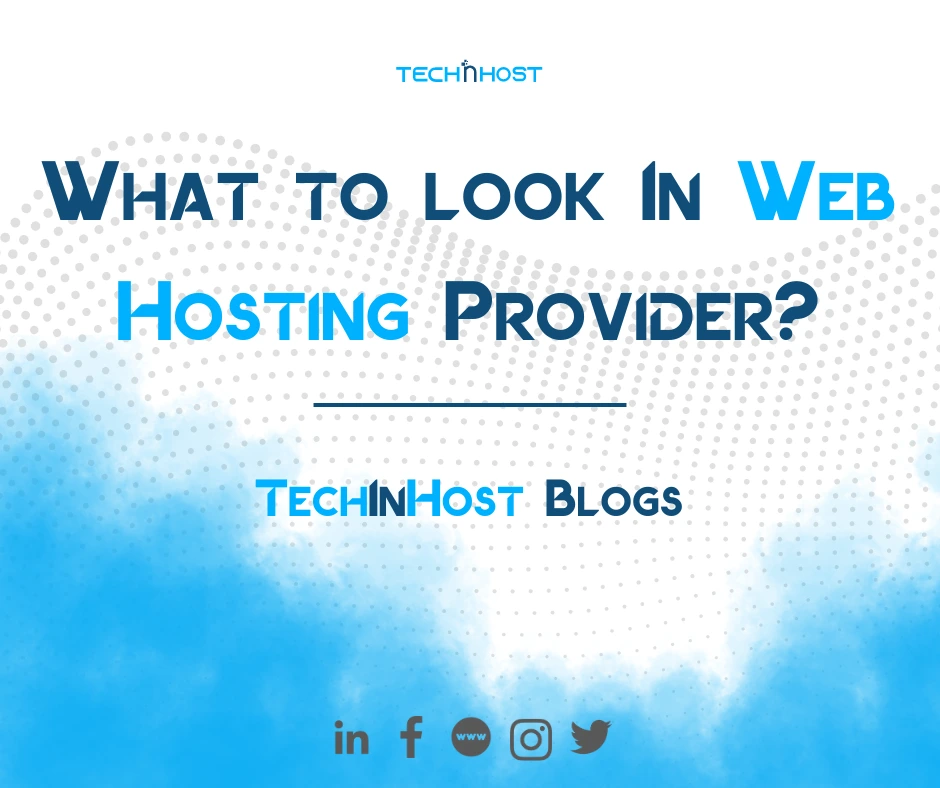Having a strong online presence is important for individuals and organisations equally. If you're moving an existing website or starting from scratch, selecting the best web hosting provider is one of the most important decisions you'll have to make. Making this decision can be hectic because there are so many options available, all of which claim to provide the best services. Now let's examine the factors you should take into account when selecting a web hosting provider to help you make an informed decision.
Reliability and Uptime Guarantee:
It is important that a hosting provider be reliable. Search for hosting providers that provide 99.9% or greater uptime guarantees. Making sure your website is available round the clock is key because downtime can cost you money and harm your reputation.
Performance and Speed:
Search engine rankings and user satisfaction both depend on a website that loads quickly. A hosting provider offering SSD storage or NVMe SSD, powerful caching, and content delivery networks (CDNs) to deliver the website content users worldwide is going to be the best choice.
Scalability:
As your website grows, your hosting requirements may change over time. Select a hosting company that offers scalable plans so you can quickly increase or decrease resources like processing power, disk space, and bandwidth to meet differing traffic and content needs.
Security:
It's important to safeguard your data and website from online threats. Look for hosting companies that provide features like firewalls, DDoS protection, malware scanning, SSL certificates, and routine backups. Ask about the provider's security security protocols and experience managing security incidents as well.
Support:
Having reliable customer service can be extremely helpful when you run into technical problems or need help configuring. Make sure the hosting company provides 24/7 help via a variety of channels like phone, email, and live chat. Check for testimonials and reviews to determine how good their customer service is.
Ease of Use and Control Panel:
Website administration tasks like file uploads, database administration, email configuration, and domain management are made easier with a user-friendly control panel. Well-known control panels like Plesk and cPanel are great options for both new and experienced users because they are easy to use and have a large user base.
Price and Value for Money:
Value should take priority over price alone, even though cost is a factor. Carefully consider each hosting plan's features, resources, and support to determine its overall value. Providers that offer incredibly low-cost plans with unstated restrictions or unreliable service should be avoided.
Reputation and Reviews:
Explore the standing of potential hosts by reading independent assessments, testimonies, and reviews from reliable sources. Take note of feedback relating to performance, uptime, customer satisfaction overall, and support to learn more about the reliability and skill level of services offered by the provider.
Add-on Services and Extras:
Additional services like website builders, email hosting, domain registration, and marketing tools are provided by such hosting companies. Consider whether these extras suit your needs and whether they offer better value than standalone options that are available elsewhere.
Backup and Disaster Recovery:
To reduce the chance of data loss due to errors, hardware malfunctions, or cyberattacks, regular backups are extremely important. To make sure your data is properly secured, confirm the hosting provider's backup frequency, retention policies, and restoration processes.
Conclusion:
You can choose a web hosting provider that meets your website requirements by keeping in mind these factors and doing deep research. Make an informed decision because the correct hosting company is more than just a provider its also a strategic partner on your digital journey.


 Google Workspace
Google Workspace
